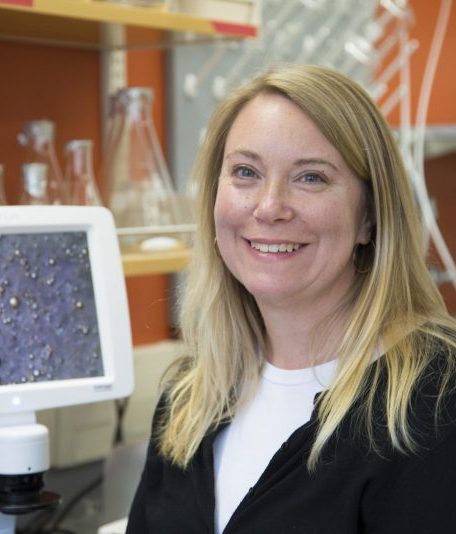
- This event has passed.
1/11/22: Rebecca Klaper

Please join us for a Great Lakes Seminar Series presentation:
Time: 1:00-2:00 pm EST
Location: Virtual
Presenter: Rebecca Klaper, Vice Dean, Professor, Director of the Great Lakes Genomics Center – University of Wisconsin Milwaukee
Title: Building the environmental science toolbox to address the complexity of exposures and effects of emerging contaminants
About the presentation: As a human population we use and are exposed to hundreds of chemicals each day, many of which are ultimately emitted into aquatic and terrestrial systems where other organisms are in turn exposed to these same chemicals. Assessing the impact of these chemicals in the environment has been a complex problem. Chemical composition and concentration vary over time and space and contaminants often occur as mixtures and therefore are difficult to characterize. Assessing the risk from these exposures is equally complex as research has shown that chronic low-level exposures have impacts on biochemical pathways that were not normally considered when evaluating safety. In addition, any one compound may occur at a dose that is below a traditional threshold of harm, yet the timing of exposure or exposure to a combination of chemicals ultimately can cause an effect. New chemicals in the marketplace, such as nanomaterials or new pharmaceuticals, present new questions as to their biological interactions and how best to determine their potential environmental impact. Research over the last 20 years has transformed the toolbox available to the field of environmental science to determine the extent to which these emerging contaminants impact organisms in aquatic environments. This presentation will discuss the innovations being made, through for example genomic technologies and in vitro screening, that advance our understanding of the interaction of emerging contaminants and organisms across phyla. Linking these technologies to environmental studies further builds the toolbox that can be used to better determine the safety of new chemicals and their environmental impact across organisms and ecosystems.
About the speaker: Rebecca D. Klaper is the Vice Dean and a Professor at the School of Freshwater Sciences, University of Wisconsin-Milwaukee. Professor Klaper studies the potential impact of emerging contaminants, such as nanoparticles and pharmaceuticals on aquatic life and how we may design these chemicals to have the least environmental impact. In addition, she has examined the transport of these chemicals through the wastewater treatment systems and into the environment and how different treatment technologies may remove them from the waste stream. Her research links the impact of these chemicals on the health of aquatic species to that of human health. She uses genomic technologies to determine how these chemical stressors may impact organisms and how the biochemical response may dictate sensitivity or resistance to stressors. As Director of the Great Lakes Genomics Center she seeks to support other researchers that are using genomic technologies for environmental research. Prof. Klaper has received a Fulbright Scholarship (U.K., 2017-2018) and a AAAS-Science and Technology Policy Fellowship. She has served as an invited scientific expert to both the U.S. National Nanotechnology Initiative and the international Organization for Economic and Cooperative Development panel on nanotechnology, the Alliance for the Great Lakes and the International Joint Commission regarding the potential impacts of nanomaterials, pharmaceuticals and personal care products and other emerging contaminants. She has served on the National Academies Panel on the Environmental Impact of Currently Marketed Sunscreens and Potential Human Impacts of Changes in Sunscreen Usage and another to Develop a Research Strategy for Environmental, Health, and Safety Aspects of Engineered Nanomaterials as well as the U.S. EPA Board of Scientific Counselors committee on Chemical Safety and Sustainability. Prof. Klaper received her Ph.D. in Ecology from the Institute of Ecology, University of Georgia.
_____________________________________________________
Questions? Contact Mary Ogdahl: [email protected]
Visit ciglr.seas.umich.edu for more information.

